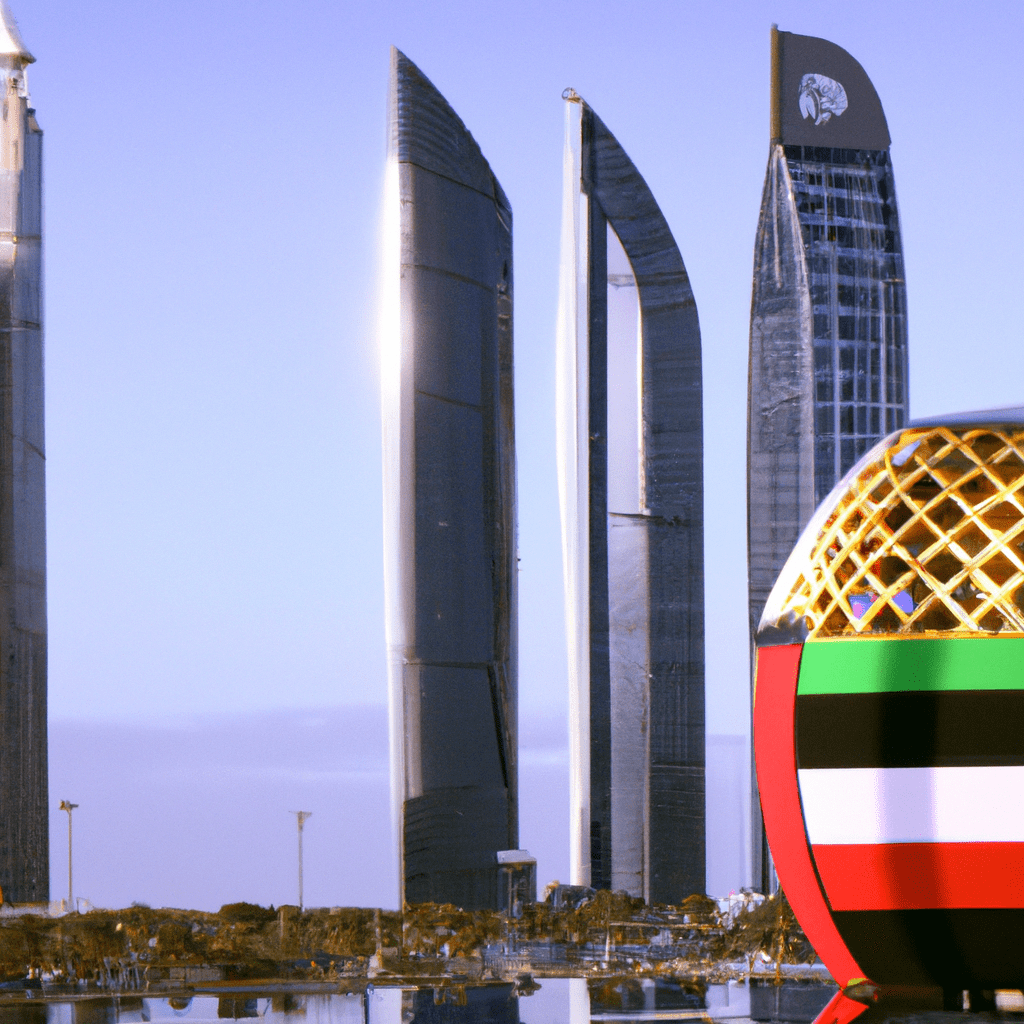-
Table of Contents
“UAE leads the way in creating a secure and supportive legal framework for cryptocurrency.”
Introduction
The United Arab Emirates (UAE) has made significant progress in building a crypto-friendly legal environment in recent years. The country has taken a proactive approach to regulating the cryptocurrency industry, recognizing the potential benefits of blockchain technology and digital assets. This has led to the development of a supportive legal framework that encourages innovation and investment in the crypto space. In this article, we will explore the UAE’s progress in building a crypto-friendly legal environment and the key initiatives that have been implemented to support the growth of the industry.
The UAE’s Regulatory Framework for Cryptocurrencies: An Overview
The United Arab Emirates (UAE) has been making significant strides in building a crypto-friendly legal environment. The country has recognized the potential of cryptocurrencies and blockchain technology and has been working towards creating a regulatory framework that supports the growth of the industry.
The UAE’s regulatory framework for cryptocurrencies is still in its early stages, but it has already made significant progress. In 2018, the UAE’s Securities and Commodities Authority (SCA) issued a statement that classified cryptocurrencies as securities. This move was a significant step towards regulating the industry and providing clarity to investors and businesses operating in the space.
The SCA’s statement also outlined the requirements for companies that want to issue initial coin offerings (ICOs) in the UAE. Companies must register with the SCA and comply with the country’s securities laws. The SCA also requires companies to disclose all relevant information about their ICOs, including the risks involved, the use of funds raised, and the company’s financial statements.
The UAE’s Central Bank has also been working on regulations for cryptocurrencies. In 2019, the Central Bank issued a draft regulation that would require cryptocurrency exchanges to obtain a license to operate in the country. The regulation also outlines the requirements for exchanges, including the need to have robust security measures in place to protect customers’ funds.
The UAE’s regulatory framework for cryptocurrencies is not limited to the SCA and the Central Bank. The Dubai Multi Commodities Centre (DMCC) has also been working on regulations for cryptocurrencies. In 2020, the DMCC launched a crypto trading platform called DMCC Crypto Centre. The platform allows companies to trade cryptocurrencies and provides a regulatory framework for the industry.
The DMCC has also launched a regulatory framework for companies that want to issue ICOs. The framework requires companies to register with the DMCC and comply with the country’s securities laws. The DMCC also requires companies to disclose all relevant information about their ICOs, including the risks involved, the use of funds raised, and the company’s financial statements.
The UAE’s progress in building a crypto-friendly legal environment has not gone unnoticed. In 2020, the country was ranked first in the Middle East and North Africa (MENA) region in terms of blockchain adoption. The ranking was based on the country’s regulatory environment, the number of blockchain startups, and the level of investment in the industry.
The UAE’s progress in building a crypto-friendly legal environment has also attracted the attention of international companies. In 2020, the cryptocurrency exchange BitOasis announced that it would be relocating its headquarters from Dubai to Malta. The move was due to Malta’s more favorable regulatory environment for cryptocurrencies.
However, the UAE’s regulatory framework for cryptocurrencies is still in its early stages, and there is still room for improvement. One area that needs attention is the taxation of cryptocurrencies. Currently, there is no clear guidance on how cryptocurrencies are taxed in the UAE. This lack of clarity could deter investors and businesses from entering the market.
In conclusion, the UAE has made significant progress in building a crypto-friendly legal environment. The country’s regulatory framework for cryptocurrencies is still in its early stages, but it has already provided clarity to investors and businesses operating in the space. The UAE’s progress has not gone unnoticed, and the country has been ranked first in the MENA region in terms of blockchain adoption. However, there is still room for improvement, and the taxation of cryptocurrencies is an area that needs attention. Overall, the UAE’s progress in building a crypto-friendly legal environment is a positive step towards the growth of the industry in the country.
How the UAE is Attracting Crypto Startups and Investors

The United Arab Emirates (UAE) has been making significant strides in building a crypto-friendly legal environment, which has attracted many crypto startups and investors to the country. The UAE has been proactive in creating a regulatory framework that supports the growth of the crypto industry, and this has been a key factor in attracting businesses and investors to the country.
One of the ways the UAE has been attracting crypto startups and investors is by creating a regulatory sandbox. The regulatory sandbox allows startups to test their products and services in a controlled environment without having to comply with all the regulatory requirements. This has been a significant advantage for startups that are looking to enter the crypto industry, as it allows them to test their products and services without having to worry about regulatory compliance.
Another way the UAE has been attracting crypto startups and investors is by creating a favorable tax environment. The UAE has a tax-free environment, which means that businesses and investors do not have to pay any taxes on their profits. This has been a significant advantage for crypto startups and investors, as it allows them to keep more of their profits and reinvest them in their businesses.
The UAE has also been proactive in creating a legal framework that supports the growth of the crypto industry. The country has created a regulatory framework that is designed to protect investors and prevent fraud. This has been a significant advantage for investors, as it has given them confidence in the crypto industry and has encouraged them to invest in crypto startups.
The UAE has also been investing in blockchain technology, which is the underlying technology behind cryptocurrencies. The country has been exploring the use of blockchain technology in various industries, including finance, healthcare, and logistics. This has been a significant advantage for crypto startups, as it has created a supportive environment for the development of blockchain-based products and services.
The UAE has also been working to attract talent to the country. The country has been offering visas to entrepreneurs and investors who are looking to start businesses in the country. This has been a significant advantage for crypto startups, as it has allowed them to attract talent from around the world.
In conclusion, the UAE has been making significant progress in building a crypto-friendly legal environment, which has attracted many crypto startups and investors to the country. The country has been proactive in creating a regulatory framework that supports the growth of the crypto industry, and this has been a key factor in attracting businesses and investors to the country. The UAE has also been investing in blockchain technology and has been working to attract talent to the country. These factors have created a supportive environment for the development of the crypto industry in the UAE, and this is likely to continue in the future.
The Future of Cryptocurrency in the UAE: Opportunities and Challenges
The United Arab Emirates (UAE) has been making significant strides in building a crypto-friendly legal environment. The country has recognized the potential of blockchain technology and cryptocurrencies and has been working towards creating a regulatory framework that supports their growth. This has led to a surge in interest from investors and entrepreneurs looking to capitalize on the opportunities presented by the crypto industry.
One of the key developments in the UAE’s crypto journey has been the establishment of the Dubai Multi Commodities Centre (DMCC) Crypto Centre. The DMCC is a government-backed free zone that provides a platform for businesses to trade in cryptocurrencies. The center offers a range of services, including licensing, compliance, and regulatory support, making it easier for companies to operate in the crypto space.
The UAE has also been proactive in regulating initial coin offerings (ICOs). In 2019, the country’s Securities and Commodities Authority (SCA) issued regulations for ICOs, requiring companies to register with the authority and comply with certain disclosure requirements. This move has helped to protect investors and prevent fraudulent activities in the ICO market.
Furthermore, the UAE has been exploring the use of blockchain technology in various sectors, including finance, healthcare, and real estate. The government has launched several initiatives aimed at promoting the adoption of blockchain, such as the Dubai Blockchain Strategy, which aims to make Dubai the world’s first blockchain-powered city by 2020.
Despite these positive developments, the UAE still faces some challenges in building a crypto-friendly legal environment. One of the main challenges is the lack of clarity around the legal status of cryptocurrencies. While the SCA has issued regulations for ICOs, there is still no clear guidance on the treatment of cryptocurrencies as a whole. This has led to some confusion among investors and businesses operating in the crypto space.
Another challenge is the lack of access to banking services for crypto-related businesses. Many banks in the UAE are hesitant to provide services to companies operating in the crypto industry due to concerns around money laundering and terrorist financing. This has made it difficult for businesses to operate and has limited the growth of the crypto industry in the country.
Despite these challenges, the UAE’s progress in building a crypto-friendly legal environment has created significant opportunities for investors and entrepreneurs. The country’s strategic location, strong infrastructure, and supportive government policies make it an attractive destination for businesses looking to enter the crypto market.
In conclusion, the UAE has made significant progress in building a crypto-friendly legal environment. The establishment of the DMCC Crypto Centre, the regulation of ICOs, and the promotion of blockchain technology are all positive developments that have helped to create a supportive environment for the crypto industry. However, the lack of clarity around the legal status of cryptocurrencies and the limited access to banking services remain challenges that need to be addressed. Despite these challenges, the UAE’s potential as a hub for the crypto industry is undeniable, and the country is well-positioned to capitalize on the opportunities presented by this emerging technology.
Conclusion
The UAE has made significant progress in building a crypto-friendly legal environment. The country has introduced regulations that provide clarity and guidance for businesses operating in the crypto space. The UAE has also established itself as a hub for blockchain and crypto innovation, with numerous startups and initiatives emerging in the country. Overall, the UAE’s efforts to create a supportive environment for crypto and blockchain technology bode well for the future of the industry in the region.



